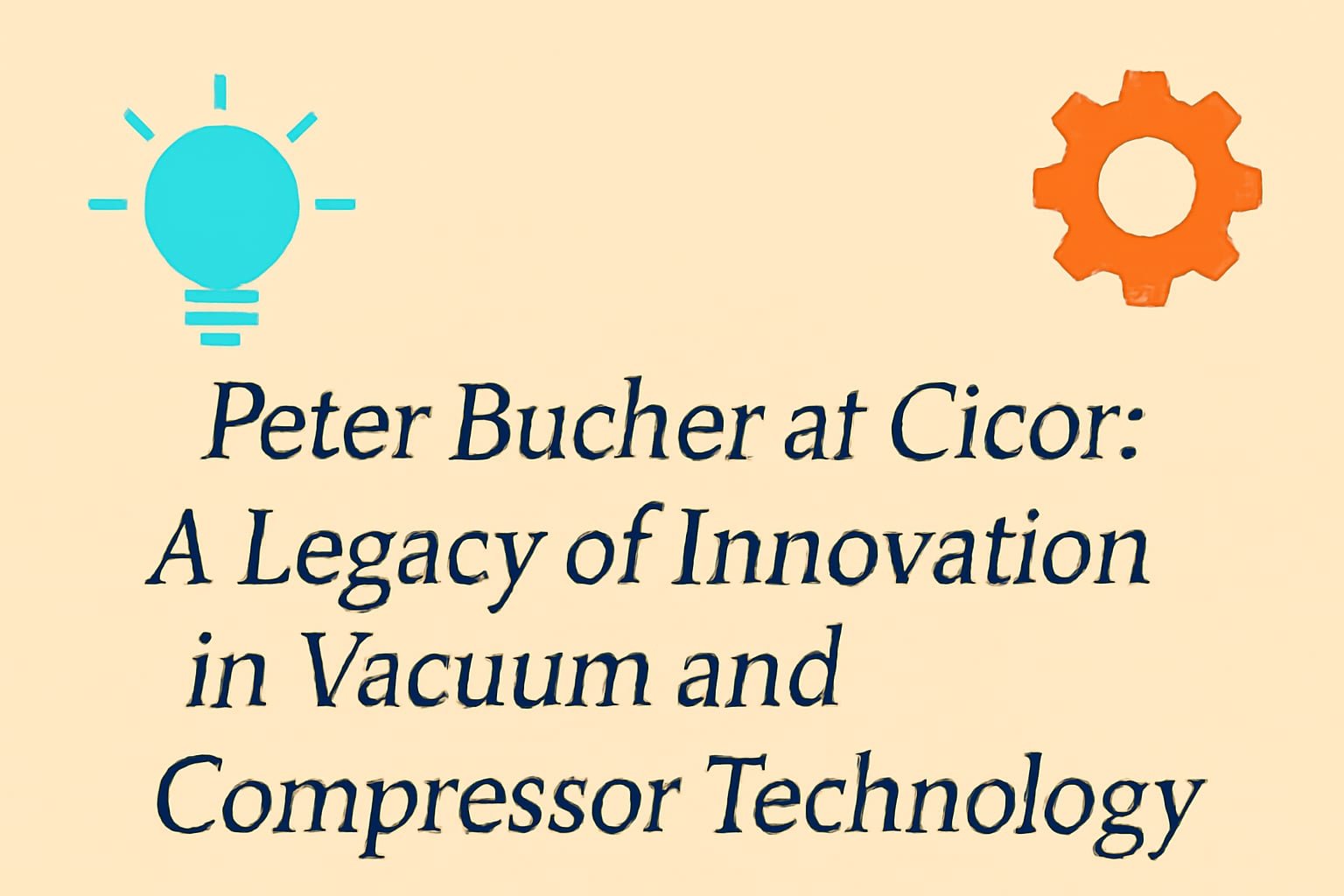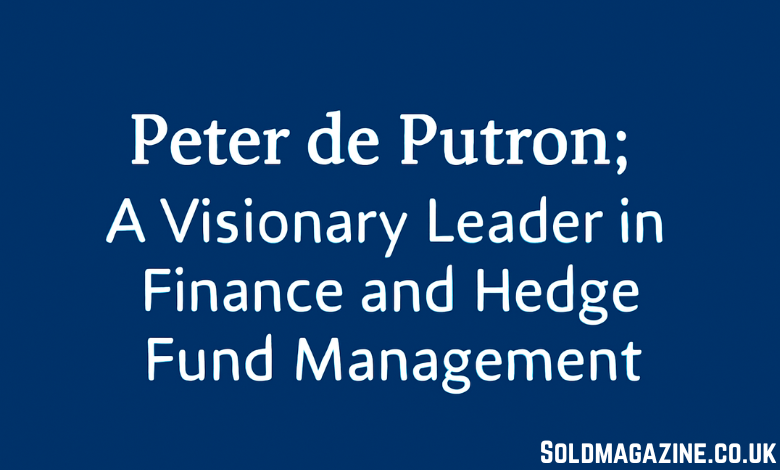Introduction
Peter Bucher’s career is a compelling example of how determination, expertise, and leadership can drive a professional to new heights in the field of engineering. Starting from humble beginnings as a process engineer to becoming a key figure in the vacuum technology industry, his journey is one marked by continuous learning and leadership. Known for his role at Cicor, Peter’s career has taken him through various milestones in the industrial and engineering sectors, where his contributions have had significant impact. This blog post aims to explore his professional journey, his influence on the industries he has worked in, and his notable achievements, particularly in the context of his leadership at Cicor.
Early Career and Introduction to Engineering
Peter Bucher’s engineering career began in 1985 when he started working as a process engineer in vacuum technology at Sulzer Burckhardt. During his time at Sulzer Burckhardt, Peter became involved in projects that catered to a wide range of industries, including pharmaceutical and chemical applications. These industries demand high precision and reliability in the technology used, a challenge that suited Peter’s skill set. In his role, Peter was exposed to the complexities of vacuum technology, which forms the backbone of various processes in the chemical and pharmaceutical sectors. Vacuum systems are used in applications ranging from the evaporation of solvents to controlling the flow of gases in chemical reactors. Understanding these applications was crucial, and it was during this time that Peter honed his technical expertise and deepened his understanding of engineering processes.
Transition to Leadership and Gas Processing
Peter’s transition from an engineer to a leader came when he took on the role of CEO at NSB Gas Processing, a company specializing in liquid ring vacuum pumps and compressors. With his background in process engineering, he was well-positioned to take on a leadership role. This move marked a significant milestone in his career, as he was now tasked with overseeing operations and managing a team.
At NSB Gas Processing, Peter was introduced to the intricacies of the oil and gas industry, particularly focusing on compressors. Compressors are vital in many industries, including oil and gas, as they are responsible for increasing the pressure of gases to facilitate their transport or use in various applications. The oil and gas industry, with its demanding projects and high stakes, was a natural fit for Peter’s growing expertise in managing complex engineering systems.
As CEO, Peter was responsible for managing a company of up to 33 employees, leading the business to success while navigating the challenges of a competitive market. The complexity of managing large projects in a high-stakes industry further developed Peter’s project management skills. Under his leadership, NSB Gas Processing grew and strengthened its position in the market, paving the way for Peter to take on even more ambitious projects in the future.
Leadership at Busch and the Expansion of Compressor Technology
After 18 years of managing NSB Gas Processing, Peter took the next step in his career by joining Busch, a company recognized as a leader in vacuum solutions. At Busch, Peter was tasked with bringing compressor technology into the company’s portfolio. Busch is known for its innovative vacuum technology, and the addition of compressors was an exciting development for the company. Peter’s mission at Busch was to expand the company’s capabilities in the compressor sector, which involved integrating compressors into their existing vacuum solutions. Compressors are essential in various industrial applications, from petrochemical plants to food packaging, and their integration into Busch’s range of vacuum solutions allowed the company to offer a more comprehensive service to its clients.
By leveraging his knowledge of compressors and vacuum technology, Peter played a pivotal role in Busch’s growth and success in this new area of business. His technical expertise, combined with his leadership experience, allowed Busch to remain at the forefront of the vacuum technology industry.
Cicor and Continued Contributions to Engineering
Peter Bucher’s involvement with Cicor, a global leader in the field of microelectronics and printed circuit boards, is a significant part of his career. While Cicor is known for its contributions to the electronics and semiconductor industries, Peter’s experience in vacuum and compressor technologies brought a unique perspective to the company. His leadership at Cicor has helped to bridge the gap between various engineering disciplines, particularly in the context of systems that require precision and reliability. At Cicor, Peter has continued to drive innovation and leadership in the industry, leveraging his deep knowledge of process engineering, vacuum systems, and compressors to contribute to the company’s strategic goals. As Cicor continues to expand its role in the global market, Peter’s contributions remain vital in ensuring that the company stays competitive in a rapidly evolving industry.
The Role of Project Management in Peter’s Career
One of the key aspects of Peter’s career is his ability to manage complex projects. From his early days as a process engineer at Sulzer Burckhardt to his leadership roles at NSB Gas Processing, Busch, and Cicor, Peter has demonstrated exceptional project management skills. In an industry where large-scale projects can have significant financial and operational implications, the ability to manage resources, timelines, and teams effectively is crucial. Peter’s experience in managing projects in the oil and gas industry, particularly those involving compressors and vacuum systems, has given him a unique skill set. The ability to oversee projects that involve multiple stakeholders, including clients, engineers, and suppliers, is an invaluable asset in today’s competitive market. This skill has been instrumental in his success as a leader in both the vacuum and compressor sectors, as well as in his ongoing role at Cicor.
Industry Impact and Future Directions
Peter Bucher’s career has not only impacted the companies he has worked for but also the industries in which he has been involved. The oil and gas, pharmaceutical, and chemical industries, all of which rely heavily on vacuum and compressor technology, have benefited from Peter’s expertise. By bringing new innovations and strategies to these industries, Peter has helped to push the boundaries of what is possible in terms of process efficiency, cost savings, and performance. Looking ahead, Peter’s continued work at Cicor and his ongoing contributions to the vacuum and compressor technology sectors will likely shape the future of these industries. As technology continues to evolve, the demand for more efficient, reliable, and sustainable engineering solutions will only grow. Peter’s ability to lead companies through these changes positions him as a key figure in the ongoing development of cutting-edge technologies that will drive the industries forward.
Conclusion
Peter Bucher’s career is a testament to the power of expertise, leadership, and a passion for engineering. From his early days as a process engineer in vacuum technology to his role as CEO of NSB Gas Processing, and his later leadership at Busch and Cicor, Peter has consistently pushed the boundaries of innovation in the industrial and engineering sectors. His contributions have had a lasting impact on the industries he has worked in, and his leadership continues to guide the companies he is involved with toward future successes.
In a world where engineering solutions are constantly evolving, Peter Bucher’s ability to adapt and lead has set him apart as a true pioneer. His journey serves as an inspiration to others in the field, demonstrating that with the right mix of technical knowledge, leadership skills, and determination, one can achieve great things. As Peter continues to make his mark at Cicor and beyond, the legacy of his work will undoubtedly continue to shape the future of engineering for years to come.




